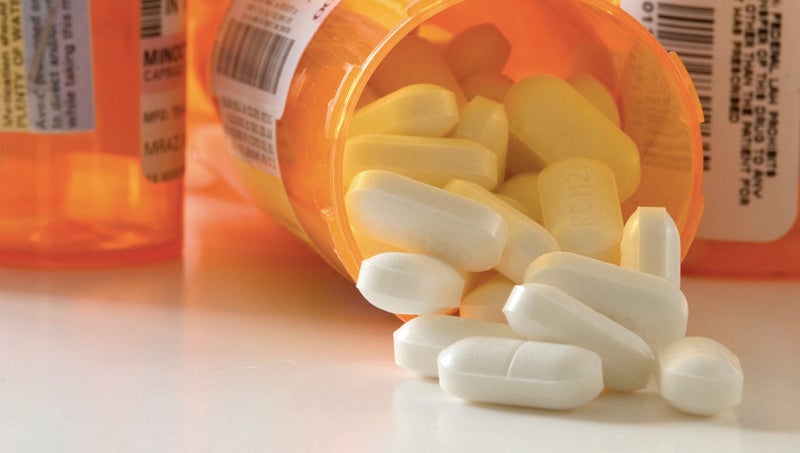County to receive millions from opioid settlement
Published 3:05 pm Monday, March 14, 2022
|
Getting your Trinity Audio player ready...
|
Beaufort and North Carolina’s other 99 counties are set to receive millions of dollars for opioid addiction treatment and prevention efforts.
A national $26 billion settlement was reached in February with three major pharmaceutical distributors — Cardinal, McKesson and AmerisourceBergen — and Johnson & Johnson. All 100 North Carolina counties as well as 47 municipalities signed onto the agreement, ensuring that the state will receive a combined $750 million from the settlement. Beaufort County could receive approximately $3,078,638, according to state data. The defendants will start releasing funds to a national administrator on April 2, 2022, and state and local governments will start receiving money in the second quarter of 2022, according to North Carolina Attorney General Josh Stein’s office.
“These companies made billions of dollars while millions of Americans got hooked on opioids,” Stein said in a statement. “In North Carolina, we’ve already lost at least 20,000 people to this crisis, and countless families more have been devastated by loss and addiction. That’s why I led a bipartisan coalition of attorneys general from across the country to hold them accountable. We achieved the second largest state attorney general settlement in history – $26 billion.
“As a result, North Carolina communities will begin to receive money this year to help people struggling with substance misuse,” Stein added. “The treatment, recovery, prevention, and harm reduction services that will be available across the state will help people regain control over their lives and make North Carolina safer. I’m grateful to the counties and cities that have joined us in the years-long work to bring this money home to North Carolina. I pray that these funds will help us take a giant leap forward towards a better future for all North Carolinians.”
Eighty-five percent of North Carolina’s $750 million will go directly to local communities to support treatment, recovery, harm reduction, and other strategies to address the opioid epidemic. The balance will go to the state for the same purposes.
After reporting an average of just over four unintentional opioid overdose deaths per year between 2010-2016, Beaufort County reported 17 overdoses in 2017, according to North Carolina Department of Health and Human Services data. That was followed by nine deaths in 2018 and 10 deaths in 2019, the last year form which data is available.
NCDHHS also shows that the county recorded 29 opioid-related emergency department visits in 2016, followed by 28 in 2017, 23 in 2018 and 29 in 2019.
The Beaufort County Health Department listed substance misuse as one of the priority issues in its 2020 State of The County Health Report.
“According to Injury Free NC and the Department of Health and Human Services, Beaufort County has one of the highest opioid prescription rates in North Carolina,” the report reads. “The equivalent of every man, woman, and child in Beaufort County could receive over 69 opioid pills each, while the state average is around 43 pills per resident. According to the NC Injury and Violence Prevention Branch, Beaufort County had 9 unintentional opioid overdose deaths in 2019. The county’s unintentional medication and drug death rate per 100,000 is 21.5, which is greater than the NC rate of 16.7. In 2019, the most common opioids resulting in emergency department visits included heroin, prescription opioids, and synthetic narcotics (fentanyl).”
“On behalf of North Carolina’s county leaders who are working tirelessly each day to help their communities recover from the effects of the opioid crisis, the NCACC and all 100 counties are committed to directing these funds to efforts that will repair the damage caused by this epidemic with diligent and actionable stewardship,” said Kevin Leonard, executive director of the North Carolina Association of County Commissioners.
In addition to the settlement, the three pharmaceutical distributors will be required to do the following, according to Stein’s office:
- Establish a centralized independent clearinghouse to provide all three distributors and state regulators with aggregated data and analytics about where drugs are going and how often, eliminating blind spots in the current systems used by distributors.
- Use data-driven systems to detect suspicious opioid orders from customer pharmacies.
- Terminate customer pharmacies’ ability to receive shipments, and report those companies to state regulators, when they show certain signs of diversion.
- Prohibit shipping of and report suspicious opioid orders.
- Prohibit sales staff from influencing decisions related to identifying suspicious opioid orders.
- Require senior corporate officials to engage in regular oversight of anti-diversion efforts.
Johnson & Johnson is required to do the following:
- Stop selling opioids.
- Not fund or provide grants to third parties for promoting opioids.
- Not lobby on activities related to opioids.
- Share clinical trial data under the Yale University Open Data Access Project.






